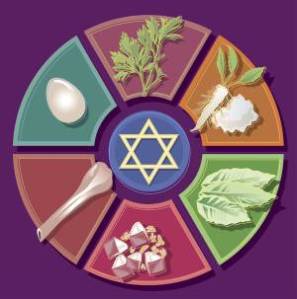
Jews in the Diaspora, Nigeria Chapter have commenced the eight-day Jewish festival of Pesach, commemorating the biblical story of Exodus, during which the first-born sons of the Israelites were passed over while those of the Egyptians were killed.
The Chief Host, Mrs. Esther Yajoke Ugwu. a.k.a Ezewanyi is the Director and Mother to the people. The well attended feast was celebrated in Okpanam, Delta state.
Brother Caleb Igwebuike Oguchekwe, said the feast is celebrated by the Jews worldwide, to convert illnesses and poverty to generational blessing of God’s own people according to the command of Almighty God.
He encouraged people to join in the celebration and enjoy the abundant blessing of God as explained in Deuteronomy 28:1-14.
According to Brother Sebastian Nnaemeka Omele, “We are celebrating the feast of Passover and unleavened bread. This shows the time the children of Israel were in bondage in the land of Egypt for 430 years. The Almighty heard their cry and sent their leader Nabi Moshe who went to Pharoah, the King of Egypt and told him that the Elohim of the Hebrews wants him (Pharoah) to let his people go and worship the Almighty in the wilderness.
“Pharoah refused to hear the word of Moshe but by too many signs and wonders, which the last one is the death of the first born of the humans and the beasts in Egypt made Pharoah to heaken to the voice of the Almighty Yahweh and allowed the people of Israel go out of Egypt.
“This period is called the Passover because the night that the death of the first born occurred, the Almighty instructed the Israelites to slay a ram or goat and make a mark of the blood on the lintels and two side posts of their houses so that when the destroying Angels see the mark of blood, they will pass over and smite the firstborn of the Egyptians in unmarked houses.
” And on that very day, the children of Israel had baked bread but because they were leaving Egypt the next morning, they could not put yeast in their bread and they ate the bread without yeast. That is called unleavened bread or bread of affliction.
“That is why the Almighty said we should do this to commemorate what He did in the land of Egypt to emancipate his people, Israel from bondage and slavery and that is exactly what we are doing.
“The period of this celebration is called the month of Habib or the month of Nisan which is usualy between the end of March and beginning of April in a year”, Brother Sebastian Nnaemeka Omele explained.
***Read Blank NEWS Online for regular news updates…Also like us on Facebook & follow us on Twitter

